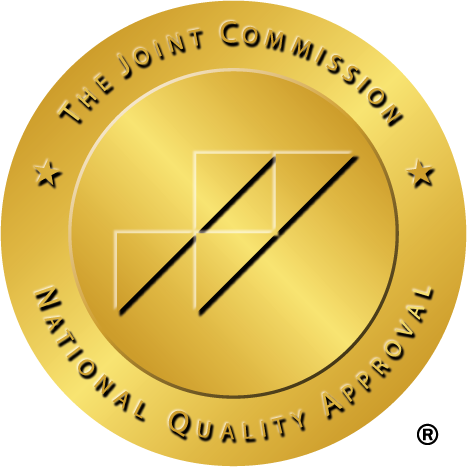Table of Contents
Key Points
- Adderall treats ADHD and narcolepsy by increasing dopamine and norepinephrine levels in the brain to improve focus and alertness.
- Long-term use requires careful medical supervision, with regular check-ups every three to six months to monitor health impacts.
- The medication affects multiple body systems, including cardiovascular, digestive, and endocrine functions, requiring consistent monitoring.
- Beyond its therapeutic benefits, Adderall can influence mood patterns, anxiety levels, and sleep quality over time.
- Long-term use may affect dental health, vision, muscle tension, and immune system responses, necessitating comprehensive health monitoring.
- Medical oversight, honest communication about side effects, and working with mental health professionals help ensure safe, effective long-term treatment.
Long-term Adderall consumption carries significant implications for physical and mental well-being. This medication, while effective for treating attention-deficit hyperactivity disorder (ADHD) and narcolepsy, can lead to lasting changes in brain chemistry and bodily functions when taken for extended periods. People taking Adderall for more than six months may experience various physiological adaptations, ranging from cardiovascular effects to alterations in sleep patterns.
Do People Take Adderall Long-Term?
Adderall is a prescription stimulant medication that combines amphetamine and dextroamphetamine.[1] It primarily treats ADHD and narcolepsy by increasing dopamine and norepinephrine levels in the brain, which helps improve focus, attention, and alertness.
Many people do take Adderall long-term, particularly those managing chronic ADHD symptoms. Research shows that when prescribed and monitored appropriately by doctors and mental health specialists, extended Adderall use can be safe and effective for symptom management.[2] Regular check-ups allow healthcare teams to assess medication effectiveness, adjust dosages, and monitor for potential side effects or complications.
However, extended Adderall use requires careful consideration and ongoing medical supervision. Some people may need to take the medication for years or decades, while others might eventually transition to different treatment approaches. The decision to continue long-term Adderall treatment depends on several factors, including symptom severity, overall health status, and the development of any side effects. Doctors typically evaluate the benefits versus risks for each person, considering factors like cardiovascular health, sleep quality, and potential dependency concerns.
What Are the Side Effects of Long-Term Adderall Use?
The long-term effects of Adderall in adults and children can range from mild to severe. While not everyone experiences these common side effects, understanding these reactions to the long-term use of Adderall helps people and their healthcare teams make informed decisions about their treatment:[3]
- Changes in mood and behavior: Increased anxiety, restlessness, and irritability affect many people taking Adderall. These emotional shifts can impact daily functioning and relationships with others.
- Appetite and weight changes: The medication often reduces hunger signals, leading to decreased food intake and potential weight loss. This effect can persist throughout treatment and requires careful nutritional monitoring.
- Sleep disturbances: Many people experience significant changes in sleep patterns, including difficulty falling asleep and staying asleep. These disruptions can affect overall energy levels and cognitive function.
- Physical symptoms: Increased heart rate, elevated blood pressure, and dry mouth commonly occur. These effects typically emerge shortly after starting the medication and may continue with ongoing use.
- Digestive system effects: Stomach discomfort, nausea, and constipation affect some people. These symptoms might require dietary adjustments or additional interventions from healthcare teams.
- Focus and attention changes: While Adderall improves concentration for many, some experience periods of intense hyperfocus that can interfere with task switching and daily activities.
How Can Adderall Affect Your Health?

The digestive system commonly shows noticeable changes, including reduced appetite and potential weight loss.[5] The medication can also affect stomach acid production and digestion speed, sometimes leading to gastrointestinal discomfort or changes in eating patterns. While Adderall helps many people focus and manage ADHD symptoms, it can influence mood, anxiety levels, and sleep patterns as well. Some people report feeling more irritable or experiencing mood swings, especially as the medication wears off each day.
The endocrine system also responds to long-term Adderall use. The medication can affect hormone production and regulation, potentially influencing everything from metabolism to growth patterns in younger people.[6] Regular blood work and endocrine monitoring help healthcare teams catch any concerning changes early.
Furthermore, sleep patterns often shift significantly, with many people experiencing changes in their sleep quality and duration.[7] Poor sleep can cascade into other health issues, affecting immune function, cognitive performance, and emotional regulation.
Are There Other Long-Term Side Effects?
Chronic Adderall use can affect several additional body systems and functions beyond the immediate side effects. The changes in brain chemistry from prolonged stimulant exposure may influence memory formation and emotional processing over time.[8] Dental health often shows notable changes, as the medication can reduce saliva production, potentially leading to increased tooth decay and gum problems.[9] Many people also experience teeth grinding, which may cause dental wear and jaw discomfort.
The musculoskeletal system can be impacted through increased muscle tension and potential changes in bone density.[10] Some people report chronic muscle aches or joint stiffness, particularly in the jaw, neck, and shoulders. Vision changes sometimes develop, including difficulties with focus and eye strain.[11] The medication can affect pupil dilation and eye moisture levels, occasionally leading to dry eyes or blurred vision.
Research also suggests possible effects on liver function as the organ processes the medication over extended periods.[12] Regular liver function testing helps monitor for any changes that might develop gradually.
Safeguarding Your Health
Taking proactive steps to protect your health while using Adderall requires consistent medical oversight and honest communication. Regular appointments with healthcare teams help monitor vital signs, organ function, and overall well-being. Blood pressure checks, heart examinations, and periodic blood work provide crucial information about how the body responds to long-term medication use.
Physical dependence on Adderall can develop even when taking the medication exactly as prescribed (in addition to Adderall misuse), making it crucial to work closely with doctors regarding any dose changes. Additionally, some people may develop psychological dependence, feeling unable to function without the medication. Should dependence happen, reach out to a drug addiction treatment program for help.
Never adjust dosages independently or share prescriptions with others, as these actions increase health risks and can lead to serious medical complications.
Mental health monitoring plays a vital role in long-term health when using Adderall as well. Working with counselors or therapists can provide strategies for managing ADHD symptoms beyond medication and help address any emotional challenges that arise. These professionals can also monitor for signs of developing dependence or misuse patterns.
Being honest about any struggles with medication use, side effects, or emerging health concerns allows healthcare teams to adjust treatment plans effectively. They can recommend additional support services, modify dosages, or explore alternative treatment options when needed. Remember that seeking help for concerns about dependence or misuse shows strength and responsibility, not weakness.
Frequently Asked Questions About Long-Term Effects of Adderall Use
Below are some of the most frequently asked questions regarding Adderall use
Sources
[1] Adderall ® CII (Dextroamphetamine Saccharate, Amphetamine Aspartate, Dextroamphetamine Sulfate and Amphetamine Sulfate Tablets). (2017). https://www.accessdata.fda.gov/drugsatfda_docs/label/2017/011522s043lbl.pdf on January 23, 2025
[2] Stevens, J. R., Wilens, T. E., & Stern, T. A. (2013). Using Stimulants for Attention-Deficit/Hyperactivity Disorder. The Primary Care Companion for CNS Disorders, 15(2). https://pmc.ncbi.nlm.nih.gov/articles/PMC3733520/ on January 23, 2025
[3] Drugs.com. (2017). Adderall. Drugs.com; Drugs.com. https://www.drugs.com/adderall.html on January 23, 2025
[4] Sichilima, T., & Rieder, M. J. (2009). Adderall and cardiovascular risk: A therapeutic dilemma. Paediatrics & Child Health, 14(3), 193–195. https://pmc.ncbi.nlm.nih.gov/articles/PMC2690554/ on January 23, 2025
[5] Caporuscio, J. (2019, May 16). What are the side effects of Adderall? Medicalnewstoday.com; Medical News Today. https://www.medicalnewstoday.com/articles/325188 on January 23, 2025
[6] Chen, C., Chien Rung Chen, Chiao Nan Chen, Wang, P. S., Mündel, T., Yi Hung Liao, & Tsai, S. (2021). Amphetamine-Decreased Progesterone and Estradiol Release in Rat Granulosa Cells: The Regulatory Role of cAMP- and Ca2+-Mediated Signaling Pathways. Biomedicines, 9(5), 493–493. https://pmc.ncbi.nlm.nih.gov/articles/PMC8145484/ on January 23, 2025
[7] Stein, M. A., Weiss, M., & Hlavaty, L. (2012). ADHD Treatments, Sleep, and Sleep Problems: Complex Associations. Neurotherapeutics, 9(3), 509–517. https://pmc.ncbi.nlm.nih.gov/articles/PMC3441938/ on January 23, 2025
[8] National Library of Medicine. (1999). Chapter 2—How Stimulants Affect the Brain and Behavior. In www.ncbi.nlm.nih.gov. Substance Abuse and Mental Health Services Administration (US). https://www.ncbi.nlm.nih.gov/books/NBK576548/ on January 23, 2025
[9] Rosenberg, S. S., Kumar, S., & Williams, N. J. (2014). Attention deficit/hyperactivity disorder medication and dental caries in children. Journal of Dental Hygiene: JDH, 88(6), 342–347. https://pubmed.ncbi.nlm.nih.gov/25534686/ on January 23, 2025
[10] Lawson, M. J., Beltran, T. A., Padilla, C. R., Berry-Cabán, C. S., & Choi, Y. S. (2022). Attention deficit hyperactivity disorder medications and bone mineral density of adults in the United States. Bone Reports, 16, 101570. https://pmc.ncbi.nlm.nih.gov/articles/PMC9062265/ on January 23, 2025
[11] Lewis, S. (2023, March 23). Adderall side effects: What you should know. Medicalnewstoday.com; Medical News Today. https://www.medicalnewstoday.com/articles/drugs-adderall-side-effects#mild-side-effects on January 23, 2025
[12] Amphetamines. (2016, April 8). Nih.gov; National Institute of Diabetes and Digestive and Kidney Diseases. https://www.ncbi.nlm.nih.gov/books/NBK548941/ on January 23, 2025
New Waters Recovery Editorial GUIDELINES
At New Waters Recovery, we take your health and wellness seriously. We have a thorough process in place to ensure the integrity of information that is displayed on our website. All content published to our site undergoes a rigorous medical review by a doctorate level clinician to ensure medical accuracy. Read More About Our Process





